Probe into more dead crabs and lobsters along North East coast
- Published
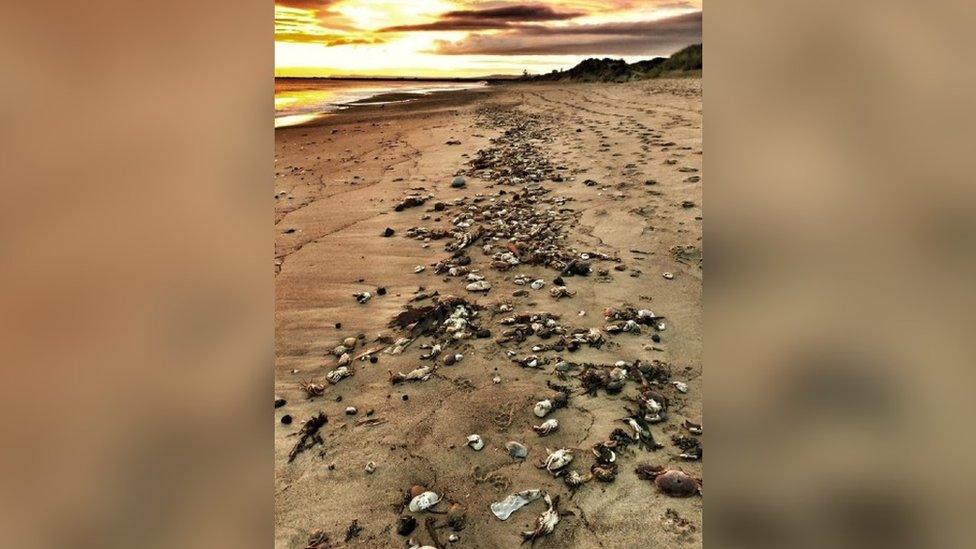
Carcasses of thousands of crabs were found at beaches including Seaton Carew
The government is investigating after new reports of dead crabs and lobsters along the North East coast.
The Department for Environment, Food and Rural Affairs (Defra) is to "undertake additional sampling" after fishermen reported further deaths.
Tens of thousands of the crustaceans first washed up on shores from Seaton Carew down to Whitby in October.
Defra previously said it had "completed a thorough investigation" which found a natural "algal bloom" was responsible.
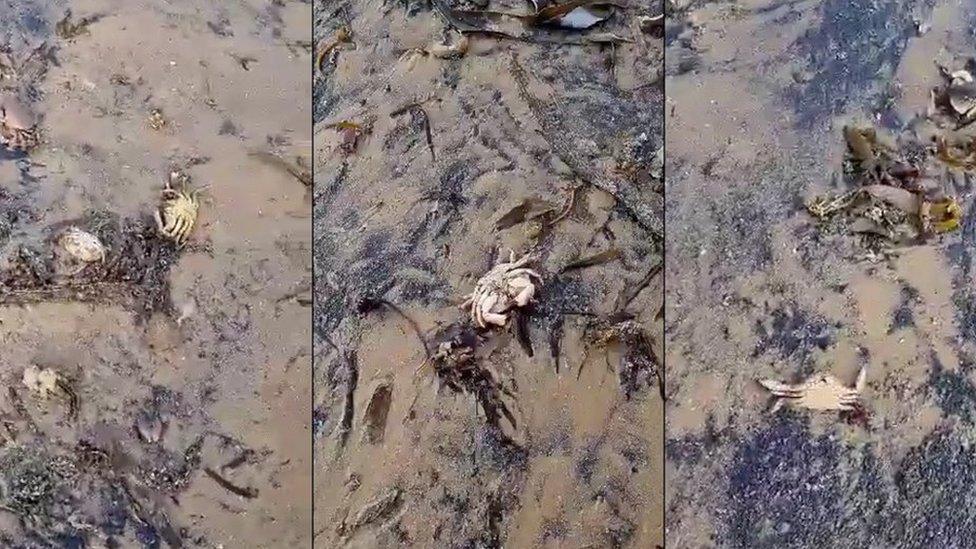
Thousands of crabs and other marine animals washed up dead along the Teesside coast last year
That finding, which Whitby and Scarborough's Conservative MP and former fisheries minister Robert Goodwill said he was "inclined to believe, having seen the evidence", has been disputed by many fishermen, as well as a marine pollution expert.
Chemical pollution and dredging have been repeatedly ruled out by Defra as likely causes.
It said it had now received reports of "further dead or dying lobsters and crabs found in a small number of pots along the North East coast" and that it would be taking samples in the area to investigate.
Adrian Noble, a Whitby fisherman of more than 40 years, said he believed there was "not a chance in the world" the deaths were caused by a naturally-occurring algae, adding the industry has been "decimated".
"The way things are at the moment, we don't know if we can go on for much longer," he said.
"There's a few fishermen having to go to food banks now. I'm just surviving off my savings."
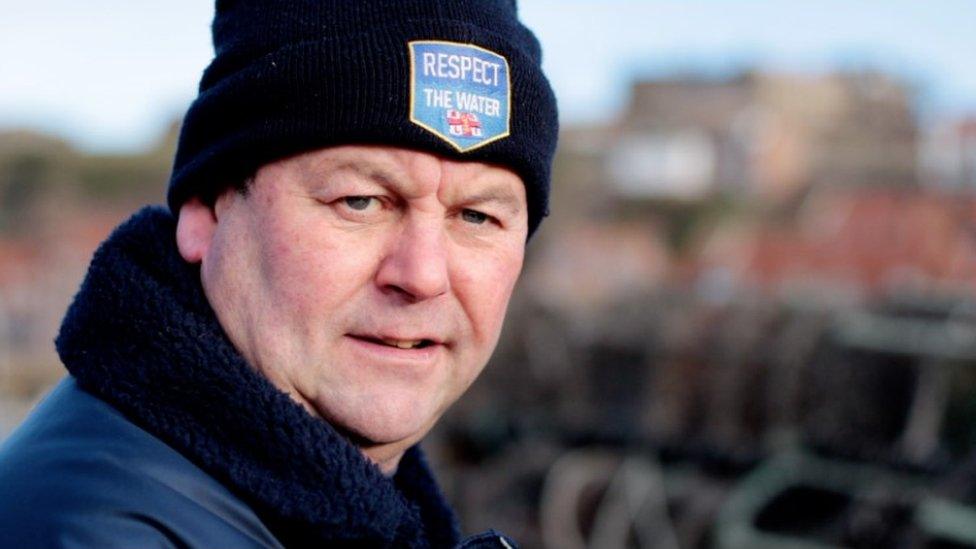
Adrian Noble fears fishermen will go bankrupt
Stockton North Labour MP Alex Cunningham is calling for financial aid for fishermen across the region.
"Fishermen using food banks - that shouldn't be happening in 21st Century Britain," he said.
"I hope others will get behind the fight to get the compensation they need to keep their businesses afloat.
"I've had fishermen in touch with me and I think it's important that we work right across the Tees Valley where livelihoods are in danger."
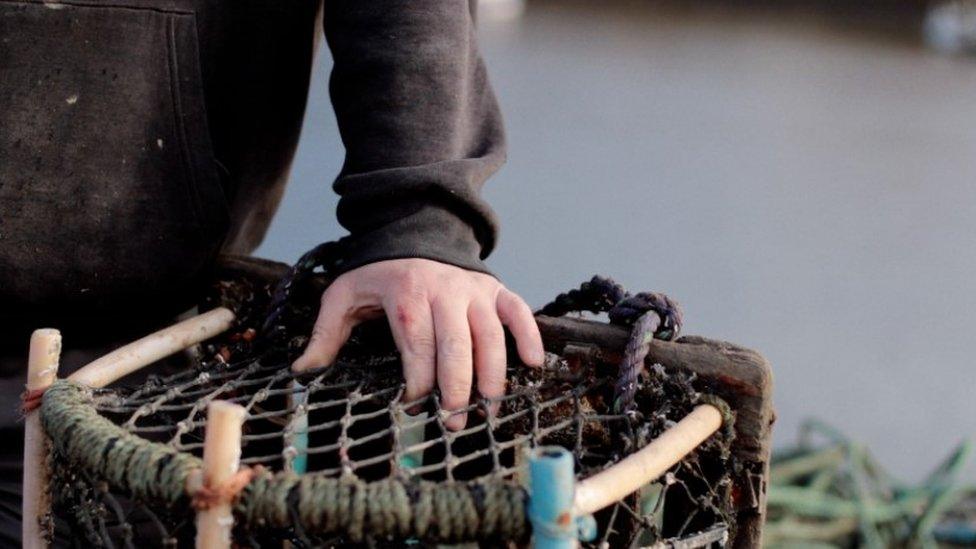
Fishermen say their catches have been badly hit
Mr Cunningham said he believed the Environment Agency had "got it right", but continuous testing was vital in case it had "got it a little wrong".
"If it's natural, or unnatural, the government should be paying out to make sure fishermen aren't accessing food banks," he said.

Follow BBC North East & Cumbria on Twitter, external, Facebook, external and Instagram, external. Send your story ideas to northeastandcumbria@bbc.co.uk, external.
Related topics
- Published5 February 2022
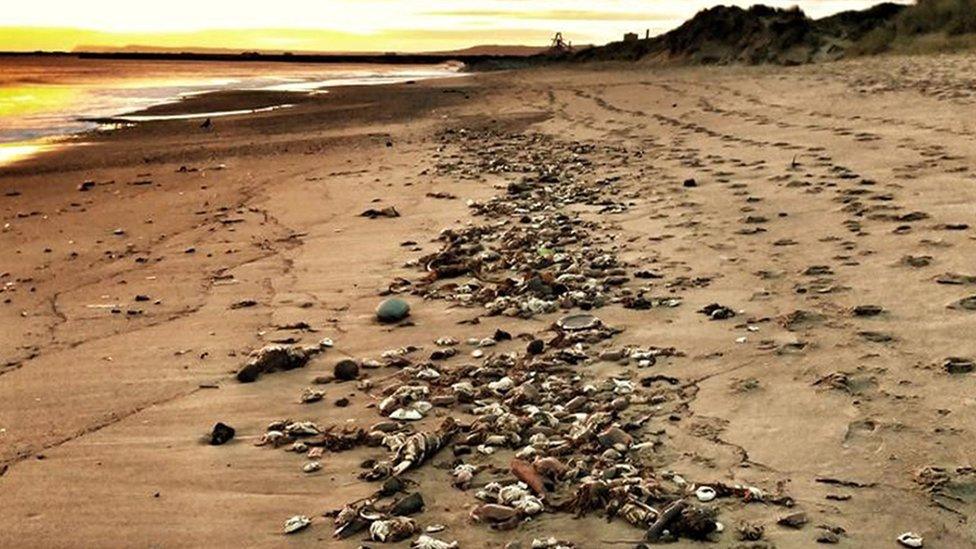
- Published3 February 2022

- Published21 January 2022

- Published4 November 2021
